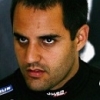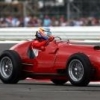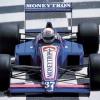
Decreasing driver churn in F1? Are we in a ‘journeyman’ era?
#1

Posted 19 September 2020 - 08:27
Now there have always been ‘journeymen’ in formula one, but the shelf life of a driver has increased hugely in recent years, partially down to the younger entry ages... is it down to the superlicense restrictions perhaps?
Haas is a great example where I’m not sure why they haven’t been willing to take a punt on a new talent, rather than renewing contracts for guys who I quite believe back in previous decades would have been dumped a long time back.
A shrinking ‘pool’ to blame? Or are the current guys just a supreme grid?
Or perhaps I’m wrong and it’s no different to normal, it’s my perception that it’s the case. I’d be interested to see a chart of the cumulative ‘drivers years experience’ and see which years had the highest driver retention vs the years with the lowest experience.
Advertisement
#2

Posted 19 September 2020 - 08:49
To start by tackling your example: Haas could take a punt on new talents, but they're struggling to develop and set up their cars as it is. If you instead put rookies in there that's likely going to make it even worse.
Magnussen and Grosjean have driven for more successful teams and have been on the podium. Haas hopes that their experience pays off in the end.
There's a chance that without them, Haas would be in an even worse state right now, and then people would wonder why they hired those rookies.
So to answer your question, I think part of it is the teams longing for continuation. Changing everything around all the time doesn't tend to make teams successful.
Success is seen as a long-term project and drivers are perhaps increasingly seen as an integral part of that.
Maybe additionally drivers are more likely to bring personal sponsors that keep teams happy? Just a guess, I don't remember the 90's and early 2000's so well.
#3

Posted 19 September 2020 - 09:06
Since it's usually the main factor, it remains more or less stable and the grid stays the same.
"Perception of talent" is a more volatile factor and so when that is the main requirement the grid changes more.
If anything, the talent pool is larger than it used to be in the 90s when F1 teams basically only looked at F3000 and, rarely, Cart.
Edited by LucaP, 19 September 2020 - 09:10.
#4

Posted 19 September 2020 - 09:13
There have been a few different eras for this kind of thing. I think you could have more time to establish yourself in the 80s and 90s, and could then stay at your level for another few years before starting to seriously struggle for drives (think Riccardo Patrese (16.5 seasons), Eddie Cheever (9 full seasons), Andrea DeCesaris (14 full seasons), Derek Warwick (~10 seasons)). Grosjean has had 9 seasons and counting by comparison, and this is Perez's 10th season. In the meantime, some of the Red Bull / Toro Rosso drivers have had very limited timescales in which to prove themselves, as did drivers like Vandoorne and Piquet Jr. This is always in flux, but there have been long running midfield F1 careers for more than three decades (at least).
#5

Posted 19 September 2020 - 09:15
I don't mean natural driving talent or driver speed. But setting up a car, understanding and being able to control all the variables to get the most out of it etc,
Also drivers are much closer in speed than they were so going for a hot shot young driver is likely only going to bank you a small speed increase once they're up to speed. Whilst experience brings consistency which is normally more important anyway these days on the midfield.
#6

Posted 19 September 2020 - 09:16
When I think back to the 90’s and early 2000’s,
That period still had unrestricted testing. It was a way to try new talent without much risk.
#7

Posted 19 September 2020 - 09:19
One factor I could think of is that there used to be more open wheel series from which drivers made the jump to F1, so the pool of talent to consider was bigger. Now you pretty much need to go through F2 as it's the one designated way to F1 and the teams don't really seem to look anywhere else. To some extent that's undoubtedly a result of those new superlicense rules.
There's also a whole lot of pre-arranged situations with a lot of teams having their junior academies. The drivers are being prepared years in advance and the teams don't want to waste the time and money it takes. That leaves us with a lot less "flexibility" in terms of new drivers on the grid. Signed junior drivers can only get a seat with certain teams, and in turn seats in those teams are pretty much reserved for them - leaving unaffiliated drivers with less chances than ever. What this also means is that the teams are more willing to temporarily stick with "mediocre" drivers while waiting for their next, already chosen junior talents to get ready.
The most important factor in winning in F1 is no longer the driver - so why swap like for like when what you really need is a Mercedes.
Was it ever?
Edited by Anja, 19 September 2020 - 09:23.
#8

Posted 19 September 2020 - 09:33
When I think back to the 90’s and early 2000’s, drivers had to come into the sport and make an impact or they were at constant risk of being replaced - there was always someone snapping at the heels of the 22 (or so) F1 drivers.
Now there have always been ‘journeymen’ in formula one, but the shelf life of a driver has increased hugely in recent years, partially down to the younger entry ages... is it down to the superlicense restrictions perhaps?
Haas is a great example where I’m not sure why they haven’t been willing to take a punt on a new talent, rather than renewing contracts for guys who I quite believe back in previous decades would have been dumped a long time back.
A shrinking ‘pool’ to blame? Or are the current guys just a supreme grid?
Or perhaps I’m wrong and it’s no different to normal, it’s my perception that it’s the case. I’d be interested to see a chart of the cumulative ‘drivers years experience’ and see which years had the highest driver retention vs the years with the lowest experience.
From looking back, I'd say it is no different. However, there are no longer teams like Marussia, HRT, Arrows, Prost, Minardi ,etc who would sometimes run multiple different drivers in a season, so there is a lot less coming and going of drivers.
There is also nobody in the immediate feeder categories that looks nailed on to come in and do a better job that those already on the grid. Even the Red Bull conveyor belt has stuttered a bit. But with several teams having their own driver academies now (rather than sponsors), the drivers in the junior series are also restricted to where they can go when they enter F1. They are almost fighting a mini-championship within a championship.
#9

Posted 19 September 2020 - 10:10
I think current grid is very strong honestly.
We're in the middle of transitional era, the best of the older guard are mostly still competing, including Hamilton, and next year Alonso too, but also many young next generation talents are on the grid aswell (Max, Leclerc, Sainz, Russell, Norris, Ocon, Gasly, Albon...) and those youngsters I'd say are quite good in general
#10

Posted 19 September 2020 - 10:16
#11

Posted 19 September 2020 - 10:19
When was in necessary to have a super licence to drive in F1? How many up and coming drivers have enough points to race each year?
Twenty years ago, Kimi got into F1 after only 23 previous car races.. That wouldn't be possible now.
#12

Posted 19 September 2020 - 10:27
^^ At least Kimi could keep his car pointing in the right direction unlike the hapless Yuji Ide!
#13

Posted 19 September 2020 - 10:38
When was in necessary to have a super licence to drive in F1? How many up and coming drivers have enough points to race each year?
Twenty years ago, Kimi got into F1 after only 23 previous car races.. That wouldn't be possible now.
Almost not possible for Kimi at the time though, Sauber had to do a lot of negotiation and his super license was provisional in the beginning. Of course, now it would not be possible with more stringent super license rules but maybe that is not such a bad thing. Considering how little experience he had.
#14

Posted 19 September 2020 - 10:41
Kimi was assessed in a three-day test of proper flat out driving. These days juniors get maybe few hours a year and lot of that is with aero-rakes or Pirelli experiments.
#15

Posted 19 September 2020 - 11:17
Some good ideas alredy mentioned in the thread but I'll add some more:
- we live in an era oversaturated with information, so it's much easier not to overlook any exceptional talent in feeder series- the best drivers go straight to F1 more so than in the past or get tied to development programs of F1 teams and there's much less chance to come across some overlooked talent nobody knew about that would do well in F1 and teams know that
- for the same abundance of information reason there's much fewer failures in terms of drivers who actually reach F1, because with as much data, there's much less chance to hire a wrong driver based on insufficient information, than in the past- those that get hired are the best and therefore stick around
Although I do have an impression that F2 has become a bit "eliticised" in recent years and is now more saturated with "journeymen" with sound financial support who hang around for a long time (sometimes for a hope of amassing enough superlicence points) and then beat less experienced drivers due to their experience, that causes less "talent mobility" and that- combined with superlicence requirements- actually makes the available pool of talent to shrink a bit. Also the fall of Formula Renault 3.5. doesn't help- it used to be a competitor series to GP2- almost equal in terms of prestige and talent level, now we have F2 only.
Also, I might add, I'm not a big fan of the superlicence system- I support the premise but I think the point values are too strict and the required number of points too hard to obtain.
#16

Posted 19 September 2020 - 12:06
It wasn't too long ago that Max Verstappen got into F1 on one season of cars.When was in necessary to have a super licence to drive in F1? How many up and coming drivers have enough points to race each year?
Twenty years ago, Kimi got into F1 after only 23 previous car races.. That wouldn't be possible now.
#17

Posted 19 September 2020 - 12:08
How is this different to Trulli in a Caterham in 2011, Eddie Irvine in a Jaguar, Andrea de Cesaris and Derek Warwick hanging on to various midfield/backmarker cars for many years into the early 90s etc etc
Perhaps careers now tend to last probably 2 or 3 years more but that's also because a) they come in younger into F1 so it takes them longer to reach retirement age and the associated decline; and b) there's very few or none truly rubbish paydrivers putting pressure on the seats held by F1 guys, unlike previous eras, thanks to the superlicense rules. I'd much rather have proper serious talents like Grosjean and Magnussen hanging on the grid into their mid 30s, even if they're never gonna be world champions, than have them be replaced by Sean Gelael, thanks.
#18

Posted 19 September 2020 - 12:39
Twenty years ago, Kimi got into F1 after only 23 previous car races.. That wouldn't be possible now.
Alonso also didn't do many car races (26), good drivers tend to be quick immediately.
#19

Posted 19 September 2020 - 13:02
When I think back to the 90’s and early 2000’s, drivers had to come into the sport and make an impact or they were at constant risk of being replaced - there was always someone snapping at the heels of the 22 (or so) F1 drivers.
Now there have always been ‘journeymen’ in formula one, but the shelf life of a driver has increased hugely in recent years, partially down to the younger entry ages... is it down to the superlicense restrictions perhaps?
A few facts and figures would be interesting. Otherwise we're trying to explain something that might not be happening.
Edited by Sterzo, 19 September 2020 - 13:03.
Advertisement
#20

Posted 19 September 2020 - 13:06
The number of races is nowadays bigger as most junior series have two or three races per weekend. Verstappen had 32 races alone in his F3 season (33 race season but he had one DNS)
#21

Posted 19 September 2020 - 16:00
To start by tackling your example: Haas could take a punt on new talents, but they're struggling to develop and set up their cars as it is. If you instead put rookies in there that's likely going to make it even worse.
Magnussen and Grosjean have driven for more successful teams and have been on the podium. Haas hopes that their experience pays off in the end.
There's a chance that without them, Haas would be in an even worse state right now, and then people would wonder why they hired those rookies.
So to answer your question, I think part of it is the teams longing for continuation. Changing everything around all the time doesn't tend to make teams successful.
Success is seen as a long-term project and drivers are perhaps increasingly seen as an integral part of that.
Maybe additionally drivers are more likely to bring personal sponsors that keep teams happy? Just a guess, I don't remember the 90's and early 2000's so well.
That didn't stop the wailing Tyrrell from famously dropping the ball on Verstappen, who himself as an experienced driver replaced the experienced Katayama, to replace him with the rookie and much inexperienced Takagi.
And there are lots of examples where this happened too. If I were Haas, I'd say it couldn't become a lot worse than it is. So why not give it a shot?
#22

Posted 19 September 2020 - 16:16
#23

Posted 19 September 2020 - 16:28
I thought about it a bit more and edited my post.
But I think the importance of the driver has decreased.
I fully disagree. In the past cars were often running much more apart and many teams were far less professional. There were a lot of mechanical DNFs. Having a driver who could reasonably take the car to the flag was in my mind good enough to score a few points in the season. Not so today. A driver 0.5 seconds a lap off the pace is simply not good enough.
#24

Posted 19 September 2020 - 17:20
#25

Posted 19 September 2020 - 18:27
Journeymen drivers have always been around. The likes of Michele Alboreto, Olivier Panis, etc, who were fairly invisible in their final years of F1, but were nonetheless hanging around till their mid-to-late 30's.
However, without checking stats I do get the impression that we get fewer rookies per season. I think there used to be about 4 rookies per season, now it seems to be less. I guess it is because average longevity of drivers has extended. But not necessarily due to "journeymen", as the likes of Panis/Grosjean still have similar career longevity, but more like lower down the field. We don't really get the likes of Yoong, Enge, Friesacher, Firman, etc hanging around for just one year or just a few races. Even the likes of Latifi get multiple seasons nowadays. So there is less experimenting down the field. But reasons have already been mentioned by others. Lack of testing, junior driver programmes, superlicence system, feeder category pyramid prevents excessive experimenting. So once you hire a driver, you stick to him and hope it works out in the long run. A prime example is Kvyat. In terms of points it's already third year (in addition to 2016-17) he is getting an obliteration by his team-mate. Not sure with performances like that he would have stayed around long "back in the day" unless he brought a lot of money.
Edited by sopa, 19 September 2020 - 18:35.
#26

Posted 19 September 2020 - 18:30
Also car advantage tended not to last more than a couple of years or so which encouraged more changes- if your sat in a dominant Mercedes for the last 7 years- why on earth would you go anywhere else on the grid?? You see alot of drivers stop at F2 then go off to other series because the F1 grid is pretty static.
#27

Posted 19 September 2020 - 20:06
That didn't stop the wailing Tyrrell from famously dropping the ball on Verstappen, who himself as an experienced driver replaced the experienced Katayama, to replace him with the rookie and much inexperienced Takagi.
And there are lots of examples where this happened too. If I were Haas, I'd say it couldn't become a lot worse than it is. So why not give it a shot?
Was Takagi not the reason Ken departed Tyrrell a year early after selling to BAT? He disagreed with the driver pick by Craig Pollock so quit before 98, but initially was to see out the final year with Tyrrell branding
#28

Posted 19 September 2020 - 20:41
When was in necessary to have a super licence to drive in F1? How many up and coming drivers have enough points to race each year?
Twenty years ago, Kimi got into F1 after only 23 previous car races.. That wouldn't be possible now.
Alonso also didn't do many car races (26), good drivers tend to be quick immediately.
How many did Max do? Wasn't he in karts not long before making it to F1?
#29

Posted 19 September 2020 - 20:58
Look at the previous generation - the likes of Fisichella, Trulli, Panis, Heidfeld, Barrichello all lingered around arguably way past their best-before dates as well. Grosjean is probably the only current driver who I’d say is genuinely lucky as hell to still be in a drive. Maybe Kvyat.
#30

Posted 19 September 2020 - 21:48
When was in necessary to have a super licence to drive in F1? How many up and coming drivers have enough points to race each year?
Twenty years ago, Kimi got into F1 after only 23 previous car races.. That wouldn't be possible now.
The drivers’ strike in Kyalami 1982 was over Super Licence fees, so it’s been a requirement since at least that long.
#31

Posted 19 September 2020 - 22:08
Graph of F1 driver turnover since 1986 (my lifetime)

Data taken from Forix. Includes Friday drivers (who in the past would have likely ended up driving for the likes of Osella, Forti or Minardi. Does not take into account future deals so Alonso is a "farewell" for 2018, for example. Still, it's a starting point for discussion.
#32

Posted 19 September 2020 - 22:15
Frankly, I don't see much drivers outside of F1 that are convincingly superior to the lower echelons of the current F! grid. Scott Dixon, Alexander Rossi, Nico Hulkenberg, Fernando Alonso (already certain of a seat next year), maybe Yuki Tsunoda or Colton Herta in a near future - that's about it.
Edited by scheivlak, 19 September 2020 - 22:17.
#33

Posted 19 September 2020 - 22:29
The poster of this topic is overlooking the one and only main reason for lack of driver movement and in particular no more in season driver movement. There is only one reason and that is lack of teams. There are only 20 F1 seats today. In 1989 there were 39 seats! Early '90s still 30 or more with often pre-qualifying sessions.
More seats means more F1 drivers and that also means more opportunities for drivers willing to move, more opportunities for a team to replace an underperforming driver and in general just more competition and more pressure on everyone. It's the only reason. With 15-16 teams today instead of 10 we would see a lot more movement and also a lot more rookie drivers.
#34

Posted 19 September 2020 - 22:33
Frankly, I don't see much drivers outside of F1 that are convincingly superior to the lower echelons of the current F! grid. Scott Dixon, Alexander Rossi, Nico Hulkenberg, Fernando Alonso (already certain of a seat next year), maybe Yuki Tsunoda or Colton Herta in a near future - that's about it.
You are overrating F1 drivers and underrating drivers in other classes. There are numerous drivers who may due to circumstances drive in WEC, Formula E (Sam Bird, James Calado, Alex Lynn, Antonio Felix da Costa for example) or DTM or even IndyCar (Colton Herta, Alexander Rossi, Felix Rosenqvist) who could have had a good decent midfield F1 carreer just like a driver like Hülkenberg or Nick Heidfeld for example had. It's just down to luck and the right circumstances why some reach F1 and some not, not due to lack of talent.
#35

Posted 19 September 2020 - 22:49
It's funny how in those "drivers good enough for F1" discussions you always see some names pop up, that, when you look at their achievements in F3/F2 etc. you see that there's nothing surprising or unjust that they've been overlooked by F1 teams. ![]()
To suggest that someone like Sam Bird or Alex Lynn had as much in him as Hulkenberg or Heidfeld is just absurd.
#36

Posted 19 September 2020 - 22:59
There are four problems to consider.
1. 20 cars in the field. You don't have to go back very far to find 30. That's a 50% increase on what we have today. In an era when you useless ride-buyers like Campos or de Cesaris blocking seats, they were not keeping out, say, Larini, as there was another seat for him.
2. Forcing every team to enter 2 cars, and only 2 cars, for every race. That cuts down those who would be able to afford 1; that stops teams having a punt with a third; and of course private entries are out. There are a number of world champions that got their start in an entry that would never be allowed today. Lauda, Piquet, Mansell, Jones, for instance. And, indeed, world champion teams (Williams, and, technically, Ferrari).
3. Safety. Not many drivers miss races through injury. And when they do, the replacement is not a tyro, but someone with experience. Remember back in 2011 when Perez got injured and he was replaced by the exciting thrusting dynamic inspiring newcomer de la Rosa? To the interest and delight of nobody? Not even Mrs de la Rosa? Who promptly binned the Sauber first go? And it wasn't even the first time that PdlR got a substitute gig? In part my half-serious suggestion that anyone causing a SC be stood down for a race is a way to replicate that artificially, and to open the door to someone else to have a go.
4. Money. Nobody is running out of it midseason to call for a replacement.
#37

Posted 19 September 2020 - 23:02
To suggest that someone like Sam Bird or Alex Lynn had as much in him as Hulkenberg or Heidfeld is just absurd.
Calado did and Jamie Green absolutely did. Green was winning in DTM while Coulthard and Ralf S were struggling to beat Susie Wolff.
Right now I'd take anyone on Formula E and half of the Indycar field ahead of either Haas driver. If nothing else to shake things up a bit. You'd think the penny at Haas would have dropped by now that one reason why they have not moved on is due to the component between the steering wheel and the roll-bar.
#38

Posted 19 September 2020 - 23:10
It's funny how in those "drivers good enough for F1" discussions you always see some names pop up, that, when you look at their achievements in F3/F2 etc. you see that there's nothing surprising or unjust that they've been overlooked by F1 teams.
To suggest that someone like Sam Bird or Alex Lynn had as much in him as Hulkenberg or Heidfeld is just absurd.
Agreed that Hülkenberg & Heidfeld are clearly quality drivers with a fantastic pre F1 CV so those were probably not the best examples I mentioned.
The reason I mentioned Hülkenberg & Heidfeld is because they had long carreers in F1 and with more teams we easily could have seen drivers like Ghiotto, Bird, da Costa, Calado, Rossi or Rosenqvist in F1 for multiple years. Someone like Vergne would have been longer in F1 as well if we had more seats.
You just have to look at the '80s or '90s and you'll find a lot of drivers having nice midfield carreers for a number of years with a CV that's not better as the ones I've mentioned. Just look at drivers like Philippe Alliot, Mark Blundell, Derek Warwick or Eddie Cheever to name some. They all had good midfield F1 careers that a driver like Antonio Felix da Costa also could have had had he been a driver in that era.
Edited by William Hunt, 19 September 2020 - 23:12.
#39

Posted 19 September 2020 - 23:17
The drivers’ strike in Kyalami 1982 was over Super Licence fees, so it’s been a requirement since at least that long.
I thought it was over the fact that the licences were issued to the driver-team combo?
Advertisement
#40

Posted 20 September 2020 - 00:04
What's new now, is that total chumps in F1 are pretty much inexistent. I look at this year's field and there's not a single driver that I think, yeah he's a total incompetent arse, nowhere near the same level compared to that one guy that's in Indycar/FE/endurance/whatever. This is a new modern phenomenon. F1 always had pretty rubbish paydrivers. You look at the current paydrivers, and Stroll was a teenager F3 champion, Latifi a F2 champion. A long way away from the days of Sakon Yamamoto.
#41

Posted 20 September 2020 - 01:22
Careers last longer than they used to, go back 30 plus years and it was unusual for drivers to stick around for more than a few years- in part the risk was higher- have a few successful years, make some money and get out and do something less dangerous.
Also car advantage tended not to last more than a couple of years or so which encouraged more changes- if your sat in a dominant Mercedes for the last 7 years- why on earth would you go anywhere else on the grid?? You see alot of drivers stop at F2 then go off to other series because the F1 grid is pretty static.
That argument makes no sense. If the Merc is dominant for 7 years then other cars are mired in midfield and back of the grid for 7 years. Why dont those drivers rotate then!?
Edited by Dolph, 20 September 2020 - 01:23.
#42

Posted 20 September 2020 - 01:29
I think on the contrary, seeing drivers like Nico Hulkenberg and (potentially) Sergio Perez booted out while still operating at a very high level suggests that there’s less security than there used to be for an experienced and capable driver who logically should easily get another seat. So many teams these days are tied to giving at least one seat to a junior driver from their engine supplier, so for example in F2 two years ago, the top three drivers from that season all got promoted straight up in addition to Giovinazzi. This year there are fewer rookies but in truth isn’t that because there were so few standouts in F2 last year?
Look at the previous generation - the likes of Fisichella, Trulli, Panis, Heidfeld, Barrichello all lingered around arguably way past their best-before dates as well. Grosjean is probably the only current driver who I’d say is genuinely lucky as hell to still be in a drive. Maybe Kvyat.
You say that, but forget he managed an average finish of 3rd for 5 races straight in the 14th to 18th race of the season in 2013. Given a good car he is capable of bringing in results. In 2015 he scored double points of Maldonado, including a podium finish. Sure, he is not WDC material, but he is also not some slow-mo Joe.
Edited by Dolph, 20 September 2020 - 01:33.
#43

Posted 20 September 2020 - 03:13
Honestly if all the following drivers were replaced I'd feel nothing;
Grosjean
Kvyatt
Latifi
Giovinazzi
Stroll
Magnussen
Albon
#44

Posted 20 September 2020 - 06:11
You say that, but forget he managed an average finish of 3rd for 5 races straight in the 14th to 18th race of the season in 2013. Given a good car he is capable of bringing in results.
Was.
More recently he has been putting himself into the barriers and blaming drivers that are barely within the same postcode.
#45

Posted 20 September 2020 - 07:18
Meh, I think past Lewis/Max/Charles/Daniel that the true quality of the current generation starts to really drop away. Also certainly the post Senna generation till early 2000s is criminally underrated. For both the cream of the crop and depth.Meh, I think this is one of the strongest fields F1 has ever seen. Certainly better than most of the 2000’s and stronger than anything after 94 in the 90’s.
#46

Posted 20 September 2020 - 08:15
I think ensign14 makes a number of important points.
If we go back to when I started watching in the late 70s, sadly it was not uncommon for a handful of drivers to miss some races due to injury in any given season.....giving someone else a go in their seat. Sadly drivers died, and that created spaces for rookies or rejects to get another go.
There was more testing, which gave a chance for rookies to show their speed and consistency without committing to race seat.
Due to the increased danger, especially before the mid 80s, careers tended to be shorter. Sure, there were guys like Riccardo Patrese or Graham Hill who had very long careers but also drivers like Jackie Stewart who retired 5 or more years earlier than they might....because they felt they'd achieved everything they wanted and the risk was too great to justify continuing.
There were more teams, and rules around swapping drivers during the season were less strict. Often pay drivers would be drafted in for a few races, swapped out multiple times per season. Occasionally a talent was discovered. Meanwhile poor pay drivers generally didn't last long.
The superlicense was not always as strict....guys like Kimi and Max probably wouldn't even have qualified for their debuts if they'd been newbies now. Prior to '82 there was no superlicense at all.
Prior to 1983 there were even non-championship F1 races (and even the Bologna pursuit races survived to 1990). Another chance for drivers who weren't in the World Championship to show they could race F1 machines.
It was even permissible to enter a 3rd (or even 4th) car for a handful of races into the mid 80s. Several drivers got their chance to shine as an "occasional" entry.
All this has changed now. Fewer teams, injury being thankfully very rare....but restrictions on testing and swapping drivers during a season, reduced number of seats, lack of opportunities to test/race F1 machinery outside of the actual championship....all make it more difficult to get in. If a team wants to try someone new, it's rather difficult these days.
#47

Posted 20 September 2020 - 10:35
Was Takagi not the reason Ken departed Tyrrell a year early after selling to BAT? He disagreed with the driver pick by Craig Pollock so quit before 98, but initially was to see out the final year with Tyrrell branding
Takagi replaced Salo, who had signed for Arrows. He had already tested extensively with the the team over the previous few seasons and it was inevitable that he would eventually secure a race seat.
Ken Tyrrell was unhappy that Pollock elected to sign Ricardo Rosset for the other seat, instead of retaining Verstappen.
#48

Posted 20 September 2020 - 22:20
With Vettel's career trajectory confirmed by a move to Racing Point / Aston Martin next year, he will join Raikkonen as an ex-elite but now journeyman driver. So that will be one more on the list.
#49

Posted 21 September 2020 - 05:42
With Vettel's career trajectory confirmed by a move to Racing Point / Aston Martin next year, he will join Raikkonen as an ex-elite but now journeyman driver. So that will be one more on the list.
Is that not inevitable for some of the newer generation who almost do their careers in reverse? Vettel was thrown straight into a team where he could win 4xWDC on the bounce, and then ever since has had less and less success. Because he is a ‘name’ and has those 4 WDC there is still value in him, but he never really ‘tread the boards’
#50

Posted 21 September 2020 - 11:47
Is that not inevitable for some of the newer generation who almost do their careers in reverse? Vettel was thrown straight into a team where he could win 4xWDC on the bounce, and then ever since has had less and less success. Because he is a ‘name’ and has those 4 WDC there is still value in him, but he never really ‘tread the boards’
Not entirely new - viz Jacques Villeneuve or Damon Hill









































